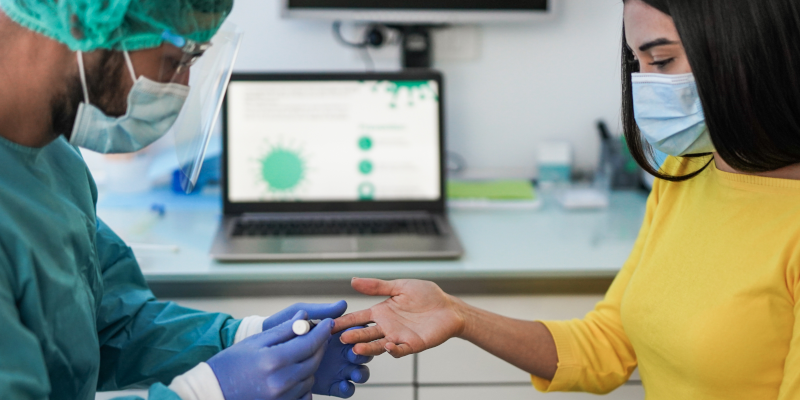A new study has found there is a greater risk of developing cardiovascular disease and diabetes in the weeks following Covid-19 infection
After studying the health records of over 400,000 Covid patients, a UK-based research team has identified an 81% increase in diabetes diagnoses in the first four weeks after contracting COVID-19, in comparison with those who are uninfected.
The researchers also discovered that patients infected with Covid were six times more at risk of cardiovascular disease than those who did not have the virus.
Co-author of the study, Ajay Shah, said: “The information provided by this very large population-based study on the longer-term effects of COVID-19 on development of cardiovascular conditions and diabetes will be extremely valuable to doctors managing the millions of people who have had COVID-19 by now. It is clear that particular vigilance is required for at least the first 3 months after COVID-19.”
While the incidence of cardiovascular disease decreased after four weeks, the study also found that the risk of developing diabetes remained elevated by 27% for up to 12 weeks following infection.
The study’s lead author, Emma Rezel-Potts, added: “Use of a large, national database of electronic health records from primary care has enabled us to characterise the risk of cardiovascular disease and diabetes mellitus during the acute and longer-term phases following COVID-19 infection. Whilst it is in the first four weeks that COVID-19 patients are most at risk of these outcomes, the risk of diabetes mellitus remains increased for at least 12 weeks.”
After studying their findings, the researchers recommend doctors advise patients about the simple changes they can implement into their lives to reduce the incidence of diabetes and cardiovascular disease.
Following a healthy diet and regularly exercising are both lifestyle changes that are proven to mitigate the risks associated with chronic health conditions such as diabetes.
“Clinical and public health interventions focusing on reducing diabetes risk among those recovering from COVID-19 over the longer-term may be very beneficial,” Rezel-Potts concluded.
Mounting evidence has already suggested a correlation between diabetes and COVID-19.
One American study found that some diabetes cases following Covid infection may not necessarily be new, but rather the condition was discovered while the patient has been receiving treatment for COVID-19. Typically, these patients had limited access to healthcare, so the condition would have been undiagnosed for years had they not been hospitalised due to Covid.
The same research also proposed that some forms of temporary diabetes were due to the stress of having COVID-19 elevating blood glucose levels.
While back in 2021, researchers seeking to explain the link between diabetes and the virus, found that the insulin-producing beta cells were being damaged during infection, causing a decrease in the amount of insulin the body makes.
With COVID-19 in the UK on the rise – an estimated one in 18 people are currently infected with the virus – it’s vital people are aware of the symptoms of diabetes, including frequent urination, increased thirst and hunger.
View a full guide to the symptoms of diabetes.
This research was originally published in the journal Plos Medicine.





